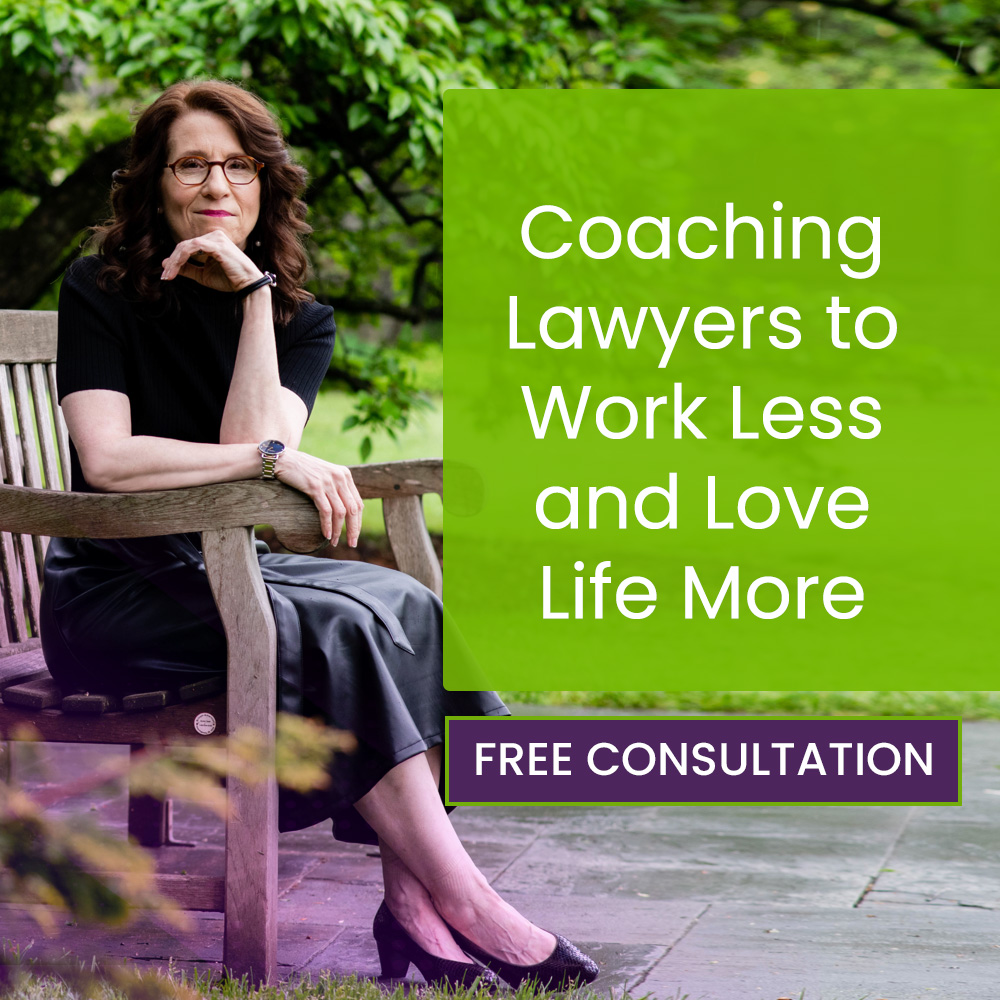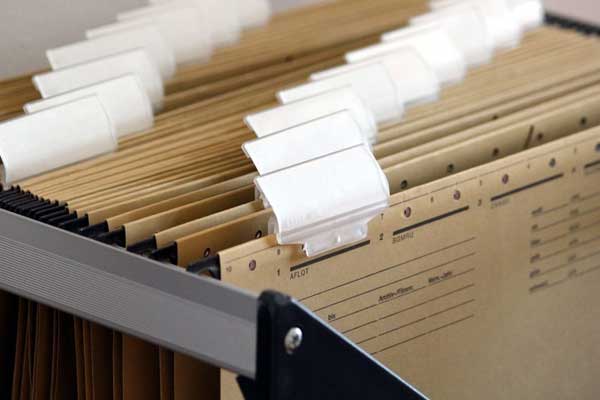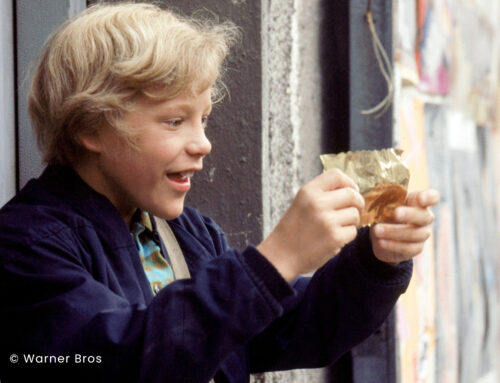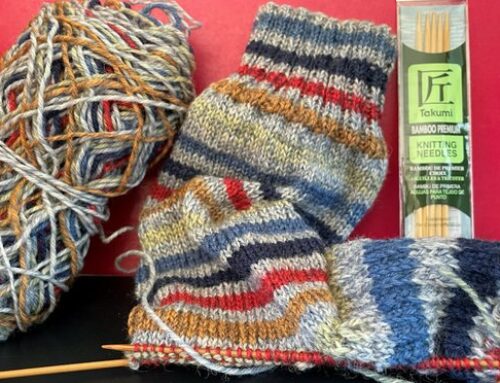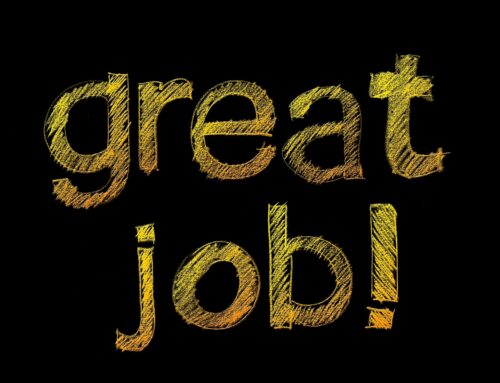Recently, I was on the phone with a fellow coach who asked about my personality type from an assessment taken in the past. I didn’t recall, so while still on the call, I quietly walked over to my filing cabinet and pulled out a folder labeled “my assessments.” The conversation continued organically as we found commonalities in our personality types.
When I started my coaching business, the conversation would have gone a completely different way because I could never have located that file so fast. I might have said, “gee, I don’t remember, that was years ago…I would have to look it up.” Not the end of the world, just a missed opportunity to make a real connection.
When opportunity knocks, you must be organized in order to meet it. Like many home-based businesses, mine grew from the middle out, rather than bottom up. I had been coaching for many years while still working as a lawyer and my filing system was essentially nonexistent. Beside secured client files, I had piles of paper with no system.
I did two things that I would suggest to any professional in similar straits: I hired a coach and then, at her suggestion, a professional organizer.
If you’re thinking “I can’t afford a professional organizer” my answer would be to invest in yourself and your business. If, like me, you need help creating office processes, the money you spend now will get you organized and free your time for other things, like getting more business and having more leisure time. You need a peaceful place to work and there is no peace or productivity to be found in clutter, which is visible, palpable, three-dimensional chaos and competes for your attention, diluting your focus.
With an organizer’s help, I automated processes, created an operations manual to document them, elevated my use of a client-relationship management system and added several applications to simplify mailings, bookkeeping, and document management. The piles are now organized in files which has increased my productivity and peace of mind.
For insight on how a professional organizer can help, here is my interview with Darla DeMorrow, owner of HeartWork Organizing and a certified professional organizer®, and author of Organizing Your Home with SORT and SUCCEED.
Dena Lefkowitz: How did you get started as a professional organizer?
Darla DeMorrow: After a dozen years in project management and financial management in the corporate world, I had the chance to step off the corporate treadmill, and started a business helping neighbors manage their homes better. I started HeartWork Organizing in 2005, and have grown the company to a small but dedicated group of organizers.
DL: How does professional organizing apply to business? Is the process the same as it would be for a home?
DD: Our trade group recently changed our name to The National Association of Productivity and Organizing Professionals because we have members who focus on both home and work environments. Many of our clients are busy working professionals who also have serious obligations and time pressures at home. The technologies and strategies we help clients with can be used throughout their lives.
DL: What are the benefits of being organized?
DD: It’s hard to focus with half-finished projects on your desk, stacked on the floor, and covering the chair. Your mind will constantly cycle through other things you need to do. We’ve all had the feeling of “having too many tabs open” in our brain! We were taught that multi-tasking is a badge of honor, but really, it slows down everything and creates open loops in your day. Re-teaching ourselves and our children how to focus on one thing at a time is going to be the single most critical skill for the next few decades. When you can focus, you can complete tasks and projects, which gives you a sense of accomplishment and confidence, which can create a positive, reinforcing cycle.
DL: How do you know when you’re there?
DD: There isn’t really a finish line to organizing. You’ll be doing it throughout your life. But you’ll feel more successful when you have systems set up that don’t require you to re-invent the process every time. For instance, as a business owner, there are plenty of necessary things that I don’t do often enough to commit them to memory. Paying my business taxes falls into that category. I have an operations manual that includes tax payment processes for my company. It takes me about 20 minutes, four times a year, to handle this very complex process because I have a documented process.
DL: In your experience, why do people live with clutter? Why is it hard to get rid of stuff? What is the resistance?
DD: The short answer is that’s what makes us interesting. Our brains are wired to save things, and those of us over 40 were brought up to depend on paper, so we usually have more of it than the millennials entering the workforce now. For the most part, we keep things because we can’t decide what to do with it, or we keep things to protect ourselves in the future. However, information and supplies are only useful if you can find them again. Instead of thinking of clutter as a safety net or as a personal moral failing, think of it as a brain function, one that is hardwired into each of our brains. Loss aversion is the term used by behavioral economists, including Nobel Prize winning economist Richard Thaler in his book, “Misbehaving.” Roughly put, losses hurt twice as much as gains make us feel good. When you know how the brain works, you can outsmart it, recognize that the loss is a result of your brain chemistry, and perhaps make different decisions about the stuff in your life.
DL: Please describe your approach.
DD: My book describes the five-step process that helps people get and stay organized. “SORT and Succeed” makes it easy to remember the essential steps to getting organized:
S= Start with a written goal. But just start!!!
O= Organize items into groups. Then, you can decide more easily what to keep.
R= Reduce, release and reset. You decide what to part with and how to store or display things.
T= Tweak. When you think you are done organizing, you can always improve. Or make incremental changes as your job, interests or family changes.
Succeed and celebrate. This little step often gets forgotten, but celebrating the end of your organizing project, makes you more likely to take on another one.
It’s just five steps, and you can apply them to organizing your home, your office, your digital files, time or even money.
DL: What do you suggest for getting the organization habit and sticking with it?
DD: Find a few systems, test them out, and keep honing them. The most important thing is to start. Just making yourself focus for 15 minutes at a time on some big goal or trying to break an annoying time-wasting habit can be the difference between frustration and fulfillment.
When you just take 15 minutes to document a process, you’ve started to improve. Add the next process to it next week and then keep at it, and over time, you’ll be in a great position to hire an assistant and your operations manual will train them.
DL: What should we look for when hiring a professional organizer?
DD: Start your search for a professional organizer at NAPO.net, the most respected industry association. The most important quality is rapport, because you will be working very closely. A good, trusting relationship will allow the professional organizer to get to know you, and offer solutions in areas where you might not have thought to ask.
You may not realize how much your environment is impacting your productivity, but you will after you get more organized. It is a relief to know where things are and to have systems for getting your business where you want it to go.
Reprinted with permission from the July 25 2018 edition of “The Legal Intelligencer” © 2018 ALM Media Properties, LLC. All rights reserved. Further duplication without permission is prohibited. For information, contact 877-257-3382, reprints@alm.com or visit www.almreprints.com.


